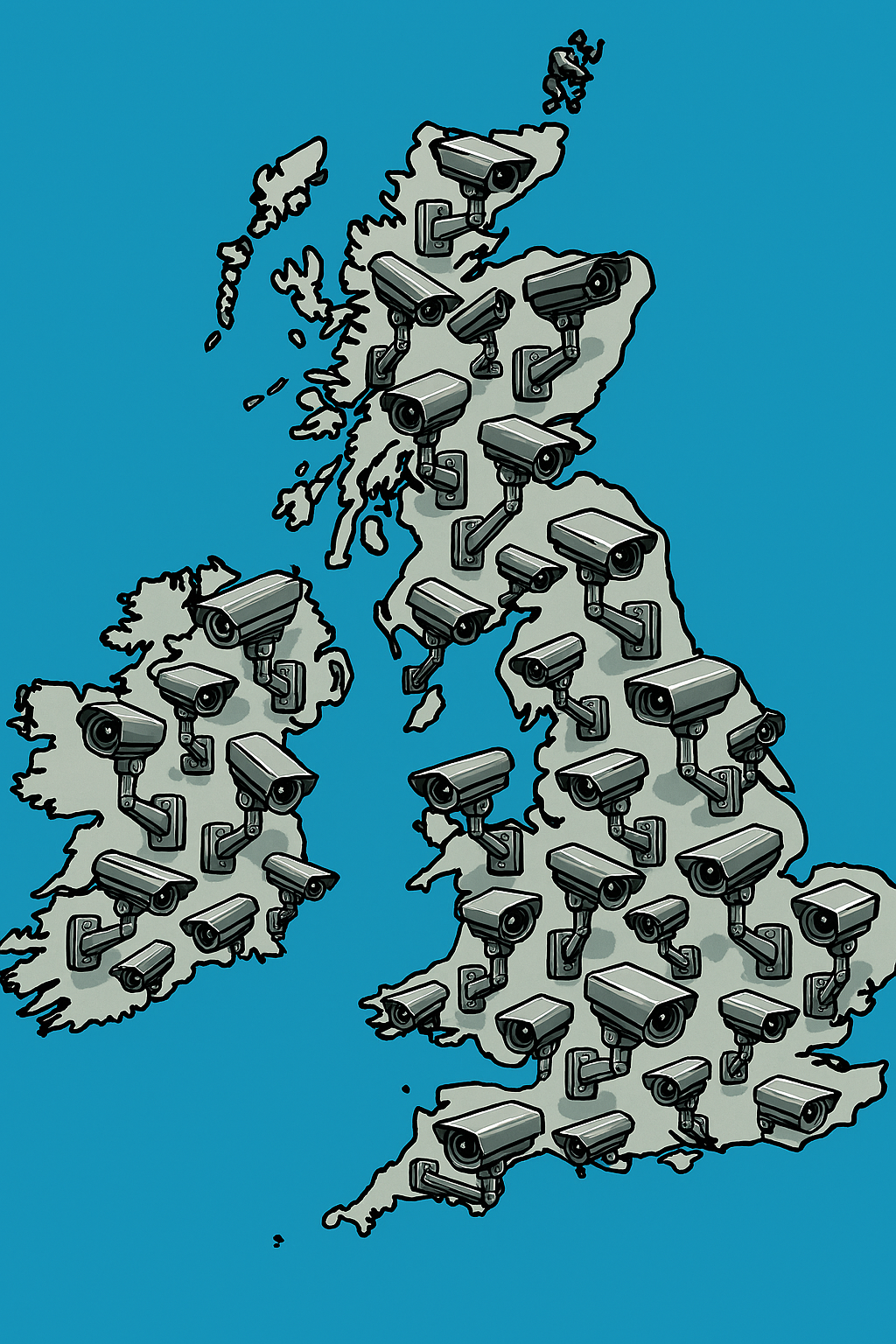
Across the United Kingdom, a silent transformation is taking place on our streets. Police forces and private companies are systematically deploying facial recognition technology, creating an unprecedented surveillance network that tracks citizens' movements without their knowledge or consent.
While authorities claim these systems are essential for fighting crime and terrorism, critics warn we are sleepwalking into a surveillance state that would make George Orwell's dystopian vision seem quaint by comparison.
🔍 Key Findings
- At least 18 UK police forces are actively using or trialing facial recognition technology
- Private companies operate thousands of facial recognition cameras without meaningful oversight
- Current legal frameworks provide virtually no protection for citizens in public spaces
- Accuracy rates remain questionable, with higher error rates for ethnic minorities
The Expansion of Police Surveillance
Metropolitan Police lead the charge with their controversial Live Facial Recognition (LFR) program, deployed at major events, shopping centers, and transport hubs across London. The system scans thousands of faces per minute, comparing them against databases of wanted individuals.
But London is just the beginning. Police forces in South Wales, West Midlands, Essex, and Leicester have all implemented or tested similar systems. The technology has expanded from major cities to market towns, creating a comprehensive surveillance network.
How Police Facial Recognition Works
Police facial recognition systems operate by capturing live video feeds and analyzing facial features in real-time. The process involves:
- Face Detection: Cameras identify human faces in crowded spaces
- Feature Extraction: Software creates mathematical representations of facial characteristics
- Database Comparison: These "face prints" are compared against police watchlists
- Alert Generation: Potential matches trigger alerts to nearby officers
The entire process takes milliseconds, allowing police to scan thousands of people without their knowledge.
Private Sector Surveillance
While police deployment garners media attention, private companies operate the vast majority of facial recognition systems in the UK. Retail chains, shopping centers, pubs, and even small businesses increasingly rely on these systems for "security" purposes.
Major retailers including Tesco, Sainsbury's, and M&S have tested or deployed facial recognition to identify shoplifters and banned customers. The technology has spread to:
- Shopping centers and retail parks
- Pubs and entertainment venues
- Transport hubs and stations
- Office buildings and residential complexes
- Schools and universities
The Legal Vacuum
Unlike many European countries, the UK lacks comprehensive legislation specifically governing facial recognition technology. Current privacy laws provide minimal protection for citizens in public spaces, creating several concerning legal realities:
Public Space Privacy Rights
In public spaces, UK citizens have virtually no expectation of privacy. Anyone can photograph or record you without consent, and this extends to automated facial recognition systems. The legal principle is clear: if you can be seen in public, you can be recorded and analyzed.
Corporate Surveillance Limits
While companies are subject to data protection laws under GDPR and the Data Protection Act 2018, these regulations contain significant loopholes for facial recognition:
- Legitimate Interest: Companies can claim facial recognition serves legitimate business interests
- Security Exception: Crime prevention provides legal justification for surveillance
- Consent Complexity: Implied consent through premises access often suffices legally
- Data Minimization Gaps: Requirements to minimize data collection are often ignored
Accuracy and Bias Concerns
Independent testing reveals significant accuracy problems with facial recognition systems, particularly affecting ethnic minorities and women. The Metropolitan Police's own data shows:
- False positive rates of up to 96% in early deployments
- Higher error rates for Black and Asian individuals
- Difficulties identifying women and elderly people
- Performance degradation in poor lighting or weather conditions
These technical limitations have real-world consequences, leading to wrongful stops, searches, and arrests of innocent individuals.
The Surveillance Infrastructure
The UK already operates one of the world's most extensive CCTV networks, with an estimated 5.2 million cameras nationwide. Adding facial recognition capabilities to this existing infrastructure creates an unprecedented surveillance capability.
Current Deployment Scale
Conservative estimates suggest:
- Over 10,000 facial recognition-enabled cameras in operation
- Coverage in major city centers, transport hubs, and shopping areas
- Integration with existing CCTV networks and traffic cameras
- Database connections to police, immigration, and security services
International Comparisons
The UK's approach to facial recognition surveillance contrasts sharply with other democratic nations:
European Union
The EU AI Act places strict limitations on facial recognition in public spaces, requiring judicial authorization for police use and banning most commercial applications.
United States
Several US cities and states have banned or restricted facial recognition use by government agencies, citing civil liberties concerns.
Australia
Australia requires explicit consent for commercial facial recognition use and has stronger parliamentary oversight of police surveillance programs.
The Path Forward
As facial recognition technology becomes ubiquitous, urgent action is needed to protect civil liberties while addressing legitimate security concerns. Potential solutions include:
- Legislative Reform: Comprehensive facial recognition regulation with clear restrictions
- Judicial Oversight: Warrants required for police facial recognition deployment
- Consent Requirements: Explicit opt-in consent for commercial surveillance systems
- Accuracy Standards: Mandatory performance testing and bias auditing
- Transparency Obligations: Public notification of surveillance system locations
⚖️ Legal Challenge in Progress
Big Brother Watch is backing groundbreaking legal action to stop the expansion of live facial recognition surveillance in the UK. This landmark case challenges the legality of police facial recognition deployments and seeks to establish stronger legal protections for citizens.
🖊️ Take Action: Sign the Petition
Join thousands of concerned citizens demanding an end to facial recognition surveillance. The Metropolitan Police's deployment of this invasive technology threatens everyone's right to privacy and freedom.
✍️ Sign the Petition to Stop Facial Recognition Surveillance
The choice facing the UK is clear: accept an omnipresent surveillance state where every citizen is tracked and catalogued, or implement meaningful restrictions that preserve both security and liberty.
The decisions made today about facial recognition technology will determine whether future generations grow up in a free society or under the constant gaze of algorithmic surveillance.